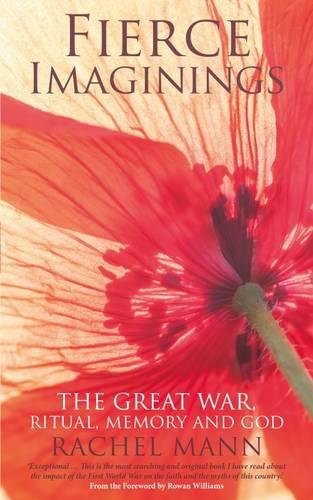Fierce imaginings: the Great War
Recommended lyrical and original exploration of the impact of the First World War and the act of remembrance
 Fierce Imaginings: The Great War, Ritual, Memory and God
Fierce Imaginings: The Great War, Ritual, Memory and God
By Rachel Mann
Darton, Longman & Todd, London,
ISBN: 978-0232532784
Reviewer: Alec Gilmore
Rituals associated with Paschendale, the Somme, the Armistice, Dunkirk and two minutes of silence are all focal points in our national life, and woe betide anyone who suggests otherwise. But how to handle traditions without ritual taking over from reality has mostly received scant attention . . . until now.
This book is a breath of fresh air. Rachel is a priest and a poet and her prose is rich in the poetic genre. With the poet's capacity to bring together things normally kept apart, always helpful but often uncomfortable, she succeeds remarkably in offering facts without explanations, with a style that is highly emotive without emotion, rooted in history but essentially contemporary, intensely personal and at the same time universal.
Travelling widely she has made a point of visiting churchyards, cemetaries and cenotaphs, many by arrangement but others quite casually, occasionally suddenly captivated by some of which she had been totally unaware. Writng in the light of her own family history in the Great War, she has furnished us with a unique exploration into 'remembering' and 'memorials' — what we are doing in those 'focal points', what we think we are doing, and how different 'the same' can be, in a different place, at a different time and in the hearts and minds of different people.
As with all poetry, a review is difficult because the potential for interpretation is so wide and personal, but a few quotes may serve to give the flavour and stimulate the appetite for more. Noting how the Church of England played a considerable role in recruiting in WW1, for example, she reflects on how the memorials and the regimental flags in many churches are 'a link between the church and the nation forged in the furnace of affliction'.
Writing on our traditional Acts of Remembrance she invites us to explore silence and how we use it, to see it as 'more than just remembering' and to beware of focusing only and overmuch on sacrifice to the neglect of 'so many other elements', one of which is thanksgiving.
The Cenotaph, similarly, is an important focus for memorialisation and commemoration of 'significant things, person and events', but that is only part of the story. It might also suggest 'a war not to be won but to be remembered', or a call to remember our own fragility, a way of 'hiding the truth of violence' from ourselves — 'a prophylactic insulating us from the thing we fear'.
Observing how war shapes a society, she writes at length on how WW1 shaped the lives of women and how those same women shaped a new society afterwards, describing 'the Pankhursts and the Holtbys' as 'ground-breakers for the women we've become'.
With a quality and a depth, this book is rich in ideas and phrases which make you stop and think, and sometimes even begin to feel different. If I were required to preach yet another sermon on Remembrance Sunday (or similar occasion) this woud be my first stopping point because, apart from scripture, it would be difficult not to find a fresh, enriching angle on the familiar and the traditional.
Alec Gilmore is a Baptist minister
Baptist Times, 01/09/2017